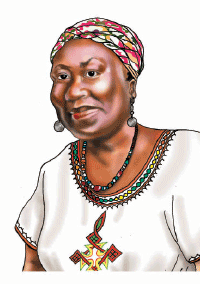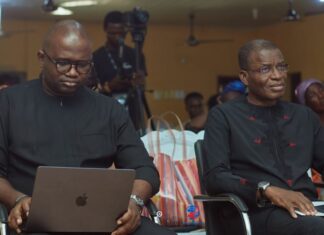uring a public hearing of the House of Representatives Committee on Tertiary Education and Services at the National Assembly Complex, Abuja, on June 6, 2016, the Speaker, Yakubu Dogara, noted that the bills and motions that were before the committee and invited stakeholders for consideration were “geared towards bringing the much-needed change in this all-important sector to competitive world standards, such that the foreign exchange being spent on overseas education could be preserved and channelled to other needy sectors”.
The Speaker described as “alarming” the report that Nigerians spend more than N500 million annually on the education of their children in the United States of America and the United Kingdom, and maintained that this state of affairs was something that every Nigerian should be concerned about. Equally worrisome for Mr. Speaker and the entire membership of the House was that N1.5 trillion, being about half of the federal government’s total appropriation in 2015, was being spent on Nigerians studying abroad.
Despite the frequently mouthed need to bring Nigerian educational institutions up to international standards – or, to use Speaker Dogara’s expression, “competitive world standards” – one finds it hard to believe that there is much sincerity behind all those right-sounding-words. The actions and policy decisions taken by successive governments do not demonstrate a genuine willingness to tackle head-on the challenge of our abysmally low and still falling standards of education. Some examples of recent happenings demonstrate this clearly. At the beginning of this month of June 2016, the authorities (Minister of Education and Registrar of the Joint Admissions and Matriculation Board, JAMB) announced the scrapping of the Post-Unified Tertiary Matriculation Examination (UTME) and declared 180 (out of 400) as the minimum score for admission into any tertiary institution in Nigeria. However, these institutions would be free to conduct oral and essay examinations for their prospective students.
Several questions arise, especially with regard to universities. First, is it worth offering admission in a university to someone who could not score up to 50 per cent of the obtainable marks? University education is expensive; that is the reason some countries make students pay dearly for it if they desire it (like in the United States of America, although there are student loans), while those countries who choose to keep the costs relatively low are compelled to control the number of people who gain access into universities (as in France and Germany). That is, you cannot make universities accessible to just about everybody and at the same time keep the fees low – which is what is happening in Nigeria’s government-owned universities. We want to have our cake and eat it. The consequences are staring us in the face, for example, in the dilapidated structures which have exceeded their initial capacities due to uncontrolled and unplanned yearly increases in admission. Unconfirmed reports have it that the number of “freshers” for the current session at the Obafemi Awolowo University (OAU) is in excess of 7,000.
Also, because of the costs associated with maintaining a huge number of students in our public universities, the federal government has been unable to adequately fund research, which is critical for development. Many of our universities are therefore not much more than schools where teachers merely pass on the knowledge accrued from other people’s innovation. When will we begin to fund research the way it deserves, so that we can bring sustainable solutions to our own problems too and contribute significantly to the global knowledge pool? Because we do not fund research, we are condemned to always look to the developed world for solutions to many of the challenges confronting us. And yet, there are well-trained academics in our institutions, many of whom obtained their degrees from the leading universities of the world and even manage to find ways of travelling frequently abroad to keep themselves abreast of the latest developments in their fields. However, the investment required for conducting research locally has to be provided.
The current medical trip of President Muhammadu Buhari to the United Kingdom to seek treatment for an ear infection and a persistent cough has equally directed attention to the education sector, driving home the point that the country needs more than lip service to be paid to revitalising education. Why do we lack the capacity to treat the President’s ear infection if, according to reports, the country has more than 250 Ear, Nose and Throat (ENT) specialists? If our leaders know that they can always jet out of the country for their own health issues, will they commit to really improving the sector? If travelling abroad for medical reasons has been banned for public office holders, should the President not be the first to give the lead?
A final issue is the politicising of education seen in the policy of making Vice Chancellors of universities political appointees. The practice for several years now is that before Vice Chancellors are appointed, they usually register as members of the ruling political party. Whether this is a requirement is not certain, but it has become the practice. If appointment into the leadership of an educational institution is not based on merit, how could the country pretend that it aspires to world standards? Where in the world is such being practised?
Dogara wants the education sector to become a foreign exchange earner for Nigeria. Let him go and talk to his colleagues in government.

- Advertisement -
- Advertisement -
Must Read
Leadership experts offer tips on growing business, recognising opportunities at Lekki...
Leadership experts offer tips on growing business, recognising opportunities at Lekki crusade
By Ishaya Ibrahim














